How Do You Take Care of a Pet
Introduction
Caring for a pet is a significant responsibility that requires attention, dedication, and love. Whether you’re a first-time pet owner or have experience with furry companions, understanding pet care essentials is crucial.
This article “How Do You Take Care of a Pet” aims to provide valuable insights and practical tips to ensure the well-being and happiness of your beloved pet. From nutrition and grooming to exercise and healthcare, we will explore the fundamental aspects of pet care that will help you create a nurturing environment for your furry friend.
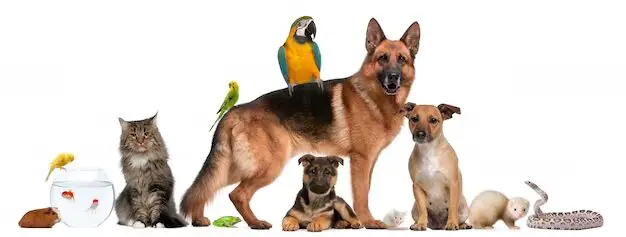
Read this: Neabot Pet Groomer
How Do You Take Care of a Pet: Choosing the Right Pet

Before diving into the intricacies of pet care, choosing the right pet that suits your lifestyle and preferences is essential. Consider factors such as size, temperament, energy level, and the time you can dedicate to your pet’s needs is the crucial step in How Do You Take Care of a Pet.
Read this: Pet Pride Dog Food
How Do You Take Care of a Pet: Creating a Safe and Comfortable Home Environment
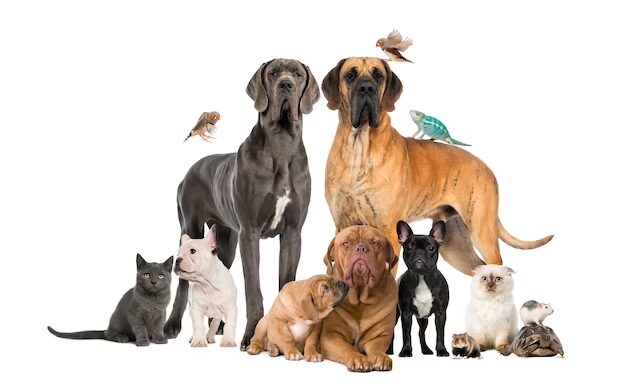
While dealing with How Do You Take Care of a Pet the second factor is to provide a safe and comfortable living environment for your pet, make sure to:
Pet-Proof Your Home
Remove hazardous items, secure loose wires, and use childproof latches to prevent access to dangerous areas or substances.
Provide a Cozy Space
Create a designated area with a comfortable bed or crate where your pet can rest and retreat when needed.
Temperature Control
Ensure that your home maintains an appropriate temperature for your pet’s well-being. Avoid extreme heat or cold.
Read this: Doggie Style Pet Grooming
How Do You Take Care of a Pet: Nutrition and Feeding
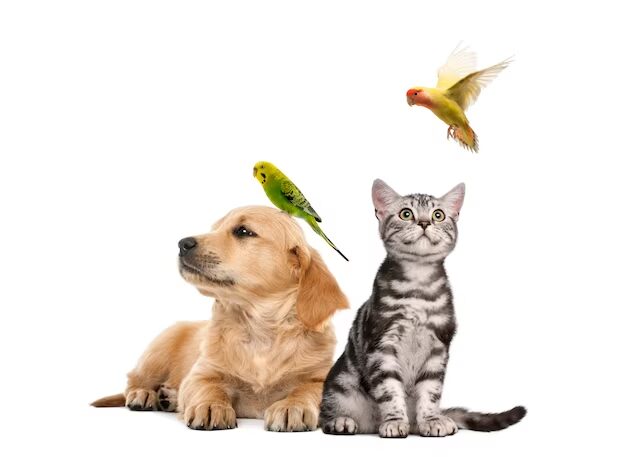
A balanced diet is crucial for your pet’s overall health and longevity when dealing with How Do You Take Care of a Pet. Follow these guidelines:
Consult a veterinarian
Please seek professional advice to determine your pet’s ideal diet and feeding schedule based on age, breed, and specific dietary requirements.
Choose Quality Food
Opt for high-quality pet food appropriate for your pet’s species, age, and size. Look for products with essential nutrients and without harmful additives.
Portion Control
Avoid overfeeding your pet, leading to obesity and related health issues. Follow the recommended portion sizes based on your pet’s weight and activity level.
Understanding the Nutritional Needs of Cats
Cats have unique dietary requirements due to their predatory nature and specific nutritional needs. Consider the following:
Protein-Rich Diet
Cats require a diet rich in high-quality animal protein to meet their essential amino acid requirements. Look for cat food labeled “complete and balanced” to ensure they receive all necessary nutrients.
Essential Nutrients
Cats need essential nutrients such as taurine, arachidonic acid, and vitamin A found in animal tissues. These nutrients are crucial to maintaining their health, vision, and immune system.
Avoiding Certain Foods
Cats should not be fed dog food, as it may lack the necessary nutrients they require. Additionally, some human foods, such as onions, garlic, chocolate, and caffeine, are toxic to cats and should be avoided.
Meeting the Nutritional Needs of Dogs
Dogs have different dietary requirements compared to cats, reflecting their omnivorous nature. Consider the following:
Balanced Diet
Dogs require a balanced diet with proteins, carbohydrates, fats, vitamins, and minerals. Look for dog food formulated to meet the nutritional needs of different life stages (puppy, adult, senior).
Protein Sources
Dogs can obtain protein from animal and plant sources. High-quality animal protein, such as chicken or beef, is beneficial, but some dogs can also thrive on well-formulated vegetarian or vegan diets under veterinary supervision.
Essential Nutrients
Dogs require essential nutrients like omega-3 fatty acids, calcium, and phosphorus for proper growth, development, and overall health. These nutrients can be obtained from commercial dog food or balanced homemade diets.
Nutritional Considerations for Birds
Birds have specific dietary requirements depending on their species and size. Consider the following:
Species-Specific Diets
Different bird species have varied dietary needs. Research the specific nutritional requirements for your bird’s species, as some may be seed-eaters, while others require a mix of seeds, fruits, vegetables, and proteins.
Fresh Fruits and Vegetables
Birds benefit from fresh fruits and vegetables, which provide essential vitamins, minerals, and fiber. Ensure the offerings are safe for your bird and avoid toxic foods such as avocado, chocolate, and caffeine.
Pelleted Diets
Commercially available pelleted diets designed for birds can provide a balanced and convenient option. Ensure the pellets are appropriate for your bird’s species and supplement them with fresh foods.
Read this: Simmons Pet Food
How Do You Take Care of a Pet: Exercise and Mental Stimulation
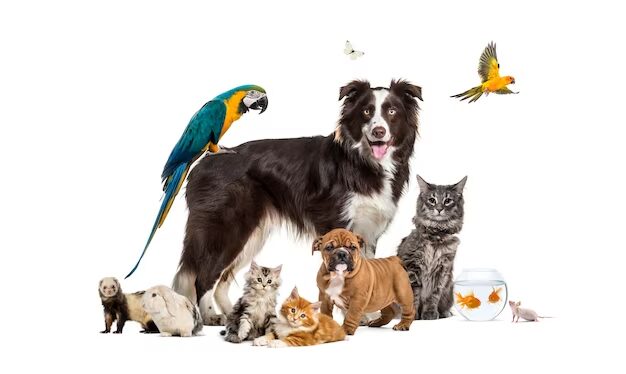
Physical activity and mental stimulation are vital for your pet’s well-being is also key consideration while dealing with How Do You Take Care of a Pet. Consider the following:
Daily Exercise
Engage in regular physical activities such as walks, playtime, or interactive games that match your pet’s energy level and breed characteristics.
Mental Stimulation
Provide your pet with toys, puzzles, or treat-dispensing devices to keep them mentally stimulated and prevent boredom.
Exercise and Mental Stimulation for Cats
Cats are natural hunters and explorers, and engaging them in appropriate activities is crucial. Consider the following:
Interactive Play
Use toys such as feathers, strings, or laser pointers in regular interactive play sessions with your cat. These mimics hunting behavior and provides mental and physical stimulation.
Vertical Space
Cats enjoy climbing and perching. Provide cat trees, shelves, or window perches to allow them to satisfy their instinct to climb and observe their surroundings.
Environmental Enrichment
Offer a variety of toys, scratching posts, and puzzle feeders to keep your cat mentally stimulated. Rotate toys regularly to maintain their interest.
Exercise and Mental Stimulation for Dogs
Dogs are energetic animals that require regular physical activity and mental stimulation. Consider the following:
Daily Walks
Take your dog for daily walks to provide exercise and mental stimulation. This also allows them to explore their environment and socialize with other dogs and people.
Interactive Toys and Games
Provide your dog with interactive toys, such as treat-dispensing or puzzle games, to keep them mentally engaged. This encourages problem-solving skills and provides a challenge.
Obedience Training
Engage in regular obedience training sessions with your dog. This provides mental stimulation and strengthens the bond between you and your pet.
Exercise and Mental Stimulation for Birds
Birds are intelligent creatures that require both physical and mental stimulation. Consider the following:
Flight Time
Allow your bird regular flight time in a safe and supervised environment. This helps them exercise their wings and promotes natural behavior.
Environmental Enrichment
Give your bird various toys, perches, and puzzles to stimulate them mentally. Rotate toys regularly to prevent boredom.
Social Interaction
Birds are social creatures and benefit from social interaction with their human caregivers. Spend quality time with your bird, engaging in activities such as talking, training, or gentle handling.
Read this: Dog Flu Symptoms
How Do You Take Care of a Pet: Grooming and Hygiene
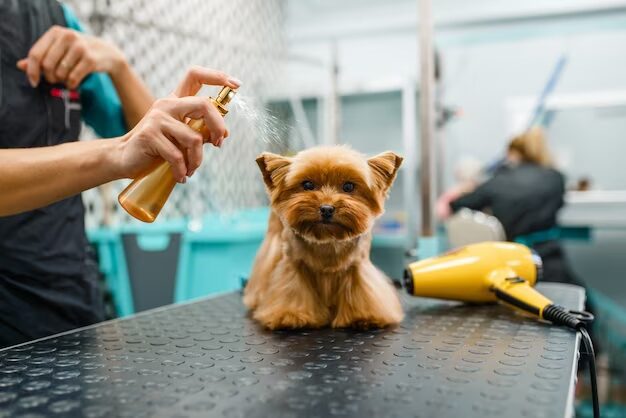
In scenario of How Do You Take Care of a Pet, regular grooming and proper hygiene practices are essential for your pet’s health and appearance:
Brushing
Regularly brush your pet’s coat to prevent matting, remove loose hair, and distribute natural oils. The frequency will depend on your pet’s breed and coat type.
Bathing
Follow a bathing schedule recommended by your veterinarian, using pet-safe shampoos and products. Avoid excessive bathing, as it can strip away essential oils.
Dental Care
Maintain your pet’s oral hygiene by regularly brushing their teeth and providing dental chews or treats. Consult your veterinarian for specific dental care needs.
Read this: How long does teething last?
How Do You Take Care of a Pet: Veterinary Care
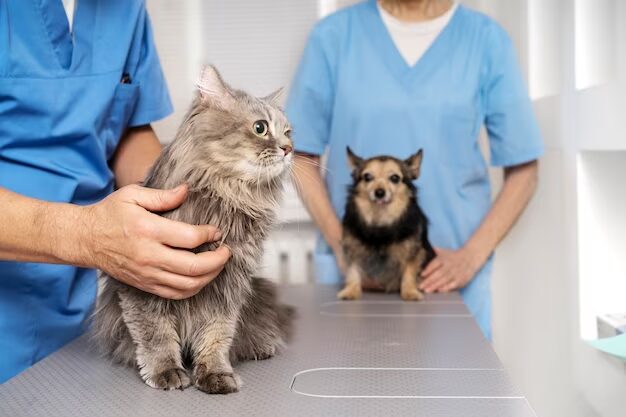
Regular veterinary check-ups are crucial for preventive care and early in How Do You Take Care of a Pet for detection of any potential health issues:
Geriatric Care
As pets age, their healthcare needs change. Regular geriatric screenings, including blood work and diagnostic tests, can help detect age-related conditions early and manage them effectively.
Specialized Care
Some pets may require specialized care due to chronic conditions or health issues. Discuss with your veterinarian the options for specialized treatments, therapies, or referrals to veterinary specialists if necessary.
Vaccinations
Ensure your pet is up-to-date on vaccinations as your veterinarian recommends to protect against common diseases.
Parasite Prevention
Regularly administer flea, tick, and heartworm preventives as your veterinarian advises to protect your pet from harmful parasites.
Annual Examinations
Schedule annual wellness exams to assess your pet’s overall health, discuss any concerns, and receive professional guidance.
Preventive Medicine
Routine veterinary care focuses on preventive measures such as vaccinations, parasite control, and overall health screenings. These proactive measures can help detect and prevent potential health issues before they become serious.
Early Detection and Treatment
Regular check-ups allow veterinarians to assess your pet’s overall health and detect early signs of illness or disease. Early intervention can significantly improve treatment outcomes and prevent the progression of certain conditions.
Tailored Healthcare
Veterinary professionals provide personalized care based on your pet’s breed, age, lifestyle, and health needs. They can guide you in implementing appropriate nutrition, exercise, and preventive care strategies.
Nutritional Guidance
Veterinarians can provide valuable guidance on nutrition, including appropriate diets and portion control tailored to your pet’s species, age, weight, and health conditions.
Read this: OHP Blog
Conclusion
Caring for a pet is a fulfilling and rewarding experience but requires commitment and responsibility. Following the guidelines outlined in above “How Do You Take Care of a Pet” comprehensive guide can provide your pet with a nurturing and enriching environment. Always prioritize your pet’s well-being, seek professional advice, and shower them with love and affection. Your efforts will contribute to your beloved companion’s happy and healthy life.



